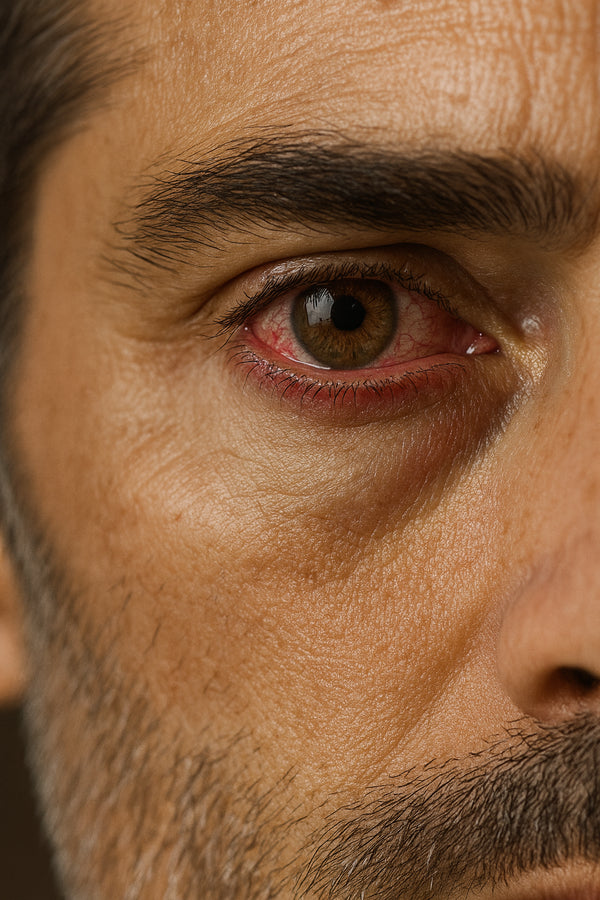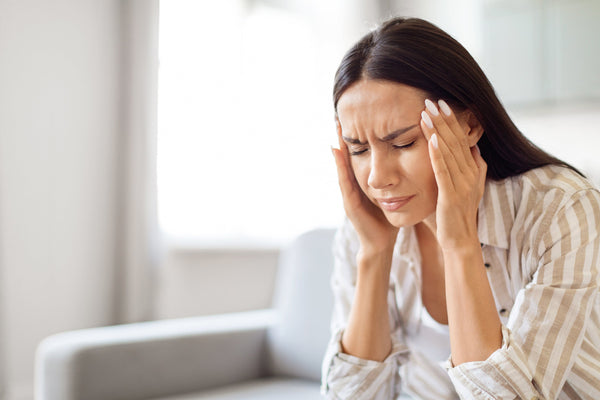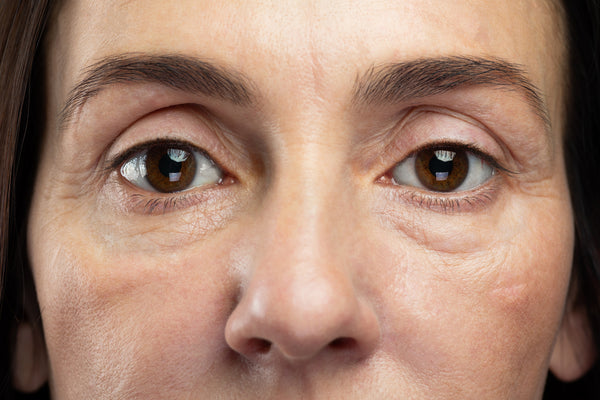
Itchy, swollen, irritated eyes are no fun for anyone. They can disrupt your day and can become sore if you end up rubbing them. Itchy eyes can be caused by a couple of different things so read on to learn more about why your eyes might be itchy and what to do about it.
What are itchy eyes?
Itchy eyes, also known as ocular pruritus, is a very common problem. It’s usually caused by allergies or by dry eyes. Other than just your eye itself feeling itchy, you might also have itchy eyelids, usually at the base of the eyelashes, and your eye area such as your eyelids might be swollen, tender, or watery.
Possible causes

Environmental factors
Most people will experience itchy eyes in the spring and summer. The warm temperatures mean the plants start releasing their pollen. Which many people are allergic to. This is also called hayfever. But beyond suffering from hayfever, you can also have allergies to other environmental factors. Dust and dust mites, pet dander, cockroaches, and mould are all things that can cause allergic reactions, including itchy eyes and sneezing.
Eye conditions
Another reason why your eyes might be feeling itchy and irritated, especially if it’s a regular occurrence, might be due to a condition called dry eye syndrome.
Dry eye is quite common and happens when your tears evaporate faster than usual, or if your eyes cannot produce enough tears. Tears don’t just flow when you well up while watching a sad film, your eyes constantly create them to help lubricate them. You can also have dry eyes even if tears are rolling down your cheeks. Caused by poor quality tears that don’t appropriately lubricate your eyes.
Systemic Causes
Although less common, additional factors that can cause itchy or irritated eyes also include conditions like autoimmune disorders and can even result as a side effect of certain medications. If you’re concerned about your eye health, speak to a Leighton’s specialist or your GP.
What are the treatment options?
Over-the-counter remedies

If your itchy eyes are caused by allergies, one of the most effective ways to help is to take antihistamines. There are a number of different anti-allergy medications available over the counter or off the shelves. They help to reduce the body’s reaction to allergens, taking away itchiness and other common hayfever symptoms like sneezing and runny noses. It’s important to ask a pharmacist for the best antihistamine for you, as not all types necessarily help with your specific ailment.
Eye baths are another method designed for immediate relief and can help to flush the eye of foreign objects. They may also help to flush out pollen, dust, or other allergens causing itching. However, there are issues around hygiene with the eye baths in general use. If they are not cleaned and stored properly between uses they are at risk of contamination by a number of microbes or bacteria. As a result infections can follow if not used properly, so we would not recommend this method.

Eye drops are also widely available to help soothe itchy eyes. It’s important to check the label when selecting the specific drops as some are designed for seasonal use and others are able to be used year round. If your symptoms continue for more than a few days, see an eye specialist.
Artificial tears are also widely available from opticians and pharmacies and are designed to replicate the tears your eyes naturally produce. This is to help hydrate your eyes and keep them lubricated.
Prescription medications
Your doctor might prescribe you medication to help deal with your itchy eyes. These will be based on the condition and cause of the itchiness so won’t be guaranteed for everyone but will be assessed based on the individual.
Home remedies
You can relieve itchiness by placing a clean, cold, damp washcloth or an ice pack over closed eyes. This can also help to reduce inflammation.

Try not to rub your eyes – it could have the opposite effect and make your eyes more itchy or introduce bacteria.
If you have dry eye syndrome, you could try to make the air as humid as possible by placing bowls of water on radiators or using humidifiers.
When should I seek medical advice?
While some itchy eye conditions can be treated at home, there are others that need a medical professional to take a look at them.
Make sure you see an eye care specialist if:
- Your symptoms aren’t getting better
- You have thick, pus-like discharge from your eyes
- Your eyes are stuck together
- You can’t keep your eye open
- Your vision is changed or blurred
- You feel like you have something in your eye
- You can see a halo around lights
- It hurts to look at bright lights
- Your pupils are different sizes
- Your eyes are swollen
- You are in pain
It’s important to contact your doctor quickly so that they can treat the issue so it doesn’t get worse.

What’s the best treatment option to deal with itchy eyes?
There isn’t a single best option when it comes to treating itchy eyes. Instead it’s important to use a combination of over-the-counter, prescription and home remedies to deal with the irritation.
If you really want to look after your eye health, then having an Eye Care Plan can help to get professional advice on hygiene, as well as having an annual test to understand your general eye health. Check out the Leightons Care Plan to not only look after your eye health, but also get fantastic discounts for future glasses and contact lenses.
Conclusion
Itchy eyes are frustrating and uncomfortable. But making sure you treat it properly is important. It could indicate something wrong but it can also cause issues with your eyes and sight if left untreated. Whether allergy-based or something more complicated, never rub your eyes. And get it checked out if your usual remedies don’t work. Don’t forget to book in regular eye check ups to make sure there aren't any underlying issues causing your itchy eyes. Check out our range of My Leightons Care Plans to pick an eye care package that’s right for you.







